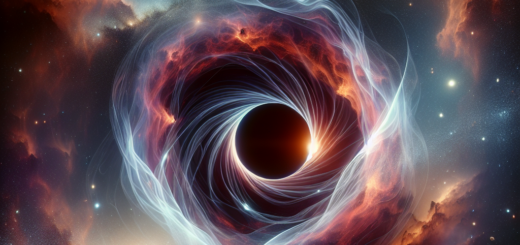Unraveling the Secrets of the Universe through Galactic Science
The universe is a vast and mysterious place, filled with countless galaxies, stars, and planets. For centuries, scientists have been studying the cosmos in an attempt to unlock its secrets and understand the origins of the universe. One of the key fields of study in this quest is galactic science, which focuses on the study of galaxies and their formation, evolution, and interactions.
Galaxies are massive collections of stars, gas, and dust held together by gravity. They come in a variety of shapes and sizes, from spiral galaxies like our own Milky Way to elliptical and irregular galaxies. Each galaxy is a unique and complex system, with its own history and characteristics.
Through the study of galaxies, scientists have been able to uncover some of the most fundamental principles of the universe. For example, the discovery of dark matter and dark energy, two mysterious substances that make up the majority of the universe’s mass and energy, was made possible through observations of the movement of galaxies.
Galactic science also plays a crucial role in our understanding of the origins of the universe. The Big Bang theory, which posits that the universe began as a singularity and has been expanding ever since, is supported by observations of the distribution of galaxies in the universe. By studying the movement and interactions of galaxies, scientists can learn more about the early stages of the universe and how it has evolved over billions of years.
In recent years, advances in technology have revolutionized the field of galactic science. Telescopes like the Hubble Space Telescope and the James Webb Space Telescope have provided astronomers with unprecedented views of distant galaxies, allowing them to study their structures and compositions in detail. In addition, computer simulations and modeling techniques have enabled scientists to recreate the formation and evolution of galaxies in virtual environments, providing valuable insights into their behavior.
One of the most exciting developments in galactic science is the study of exoplanets, planets that orbit stars outside our solar system. By observing the light from distant galaxies, astronomers can detect the presence of exoplanets and learn more about their atmospheres, compositions, and potential for hosting life. This research has the potential to revolutionize our understanding of the universe and our place in it.
As our knowledge of galaxies and the universe continues to grow, so too does our understanding of the fundamental laws that govern the cosmos. By unraveling the secrets of the universe through galactic science, scientists are paving the way for new discoveries and a deeper appreciation of the beauty and complexity of the cosmos. With each new observation and discovery, we come one step closer to unlocking the mysteries of the universe and our place within it.













